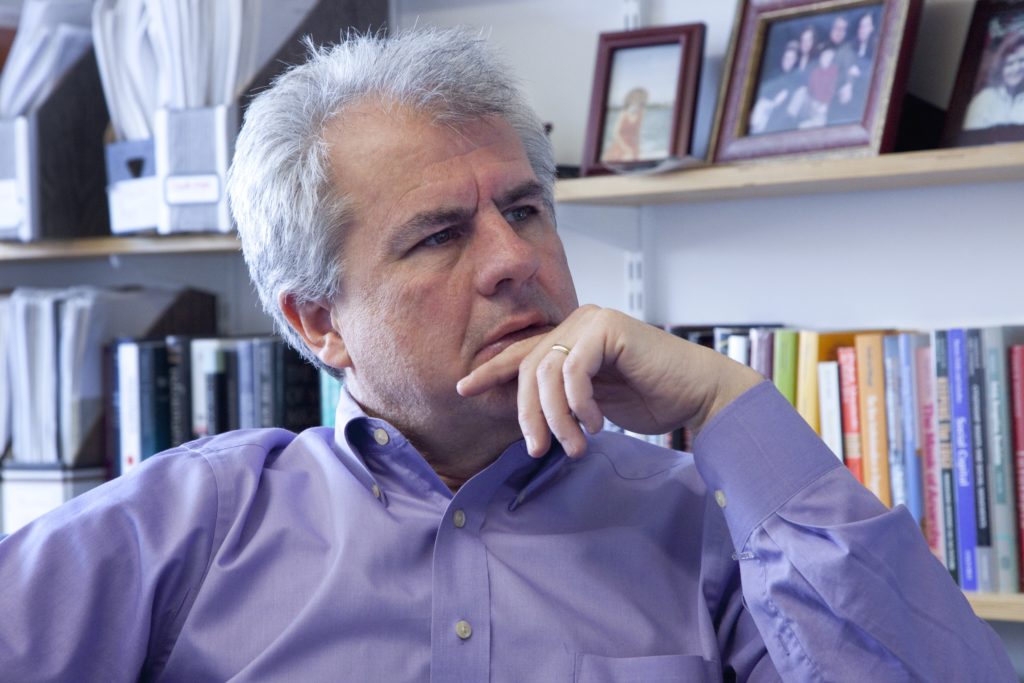Comments
- No comments found

Here’s a comment from Lant Pritchett in an interview last June.
He was asked: “What is the role of an economist?” He answered:
The thing I like most about the field of economics is that it is still mostly people who are open to empirically grounded discussions of problems in which you’ll acknowledge what the facts are and alternative approaches to modalities of making the facts different.
Then the other thing … I don’t really teach undergraduates very often, but I was invited to give the opening lecture to a development economics course of undergraduates. My take was that economics is the social science of love. It's truly loving social science, and what I meant—and they were, of course, like, “What? Economics and love? That’s crazy.” But think about what economists do. We take individuals—objective functions are objective functions. We don’t start with any premise about what would be good for society or good for X or good for Y.
But I think economists, when they’re doing it right, they start from, what is it that people want to accomplish with their lives? Okay. Let’s think about what the actual outcomes are. Let’s think about modalities at the society, political, market level that would facilitate individuals achieving their objectives more or less. And what could be a better description of love than “I’m going to take—what you want is what I want for you, and I’m going to help you achieve that.” Economics is the loving social science, is my take on what economists do best.
I speak from personal experience when I say that perhaps the professional advantage of economists is not greatest in discussions and definitions of love. But what I like about Pritchett’s comment is that so many non-economists I meet think about the subject in terms of topics like how to make money in the stock market or how to run a profitable business. Pritchett’s definition has its limitations. But at least it captures the idea of economics as a subject that focuses on what people want for themselves, and thus on the importance of people having freedom to make choices about work, skill acquisition, and types of consumption.
For those who would like a little more love-talk from economists, in a post some years back about “Is Altruism a Scarce Resource that Needs Conserving?“, I discuss the line of argument among some economists that by allowing a substantial portion of the world’s material needs to be met by the actions of self-interested producers and consumers, we can save our scarce resources of love and altruism for where they are needed.
Timothy Taylor is an American economist. He is managing editor of the Journal of Economic Perspectives, a quarterly academic journal produced at Macalester College and published by the American Economic Association. Taylor received his Bachelor of Arts degree from Haverford College and a master's degree in economics from Stanford University. At Stanford, he was winner of the award for excellent teaching in a large class (more than 30 students) given by the Associated Students of Stanford University. At Minnesota, he was named a Distinguished Lecturer by the Department of Economics and voted Teacher of the Year by the master's degree students at the Hubert H. Humphrey Institute of Public Affairs. Taylor has been a guest speaker for groups of teachers of high school economics, visiting diplomats from eastern Europe, talk-radio shows, and community groups. From 1989 to 1997, Professor Taylor wrote an economics opinion column for the San Jose Mercury-News. He has published multiple lectures on economics through The Teaching Company. With Rudolph Penner and Isabel Sawhill, he is co-author of Updating America's Social Contract (2000), whose first chapter provided an early radical centrist perspective, "An Agenda for the Radical Middle". Taylor is also the author of The Instant Economist: Everything You Need to Know About How the Economy Works, published by the Penguin Group in 2012. The fourth edition of Taylor's Principles of Economics textbook was published by Textbook Media in 2017.
Leave your comments
Post comment as a guest